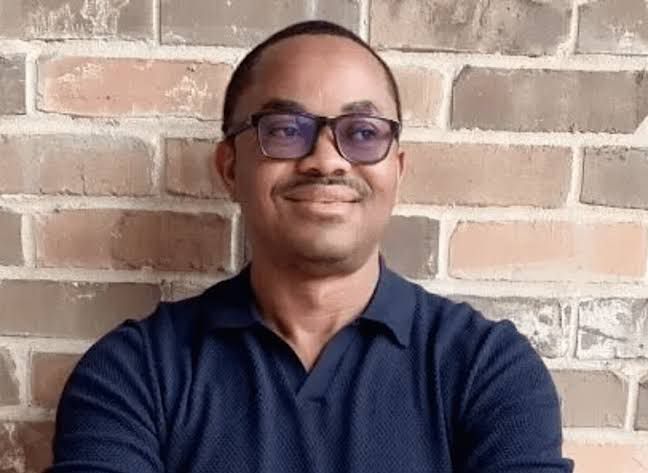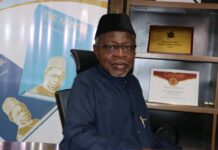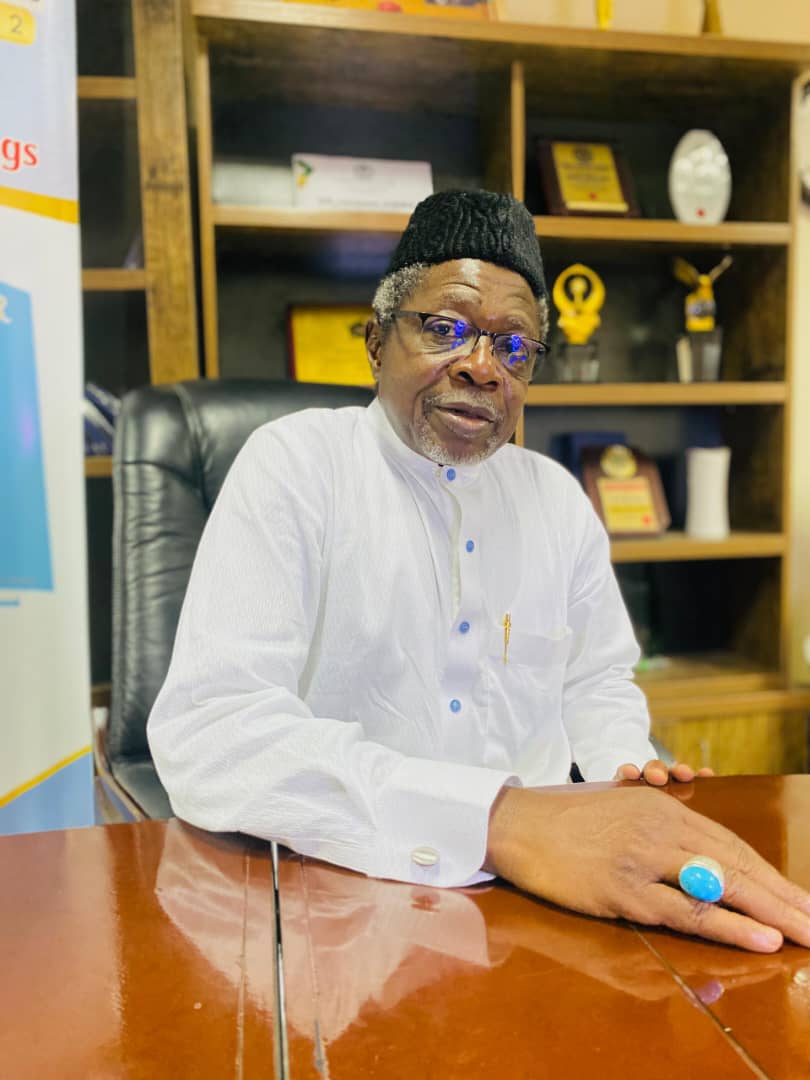Grace, Grit and Billions: Reflections on Otedola’s memoir, by Osmund Agbo
Story by Jessica Mbamah
How does one “make it big” in Nigeria? This is the central question at the heart of Femi Otedola’s memoir, “Making It Big: Lessons from a Life in Business.” In a country where economic fortunes rise and fall with dizzying speed, where policies shift like the wind, and where privilege can be as decisive as talent, Otedola’s story reads like both a case study and a testament.
Few Nigerians embody the phrase “making it big” as completely as he does. Yet what makes the book compelling is not just the tale of dizzying ascent, but the candour with which Otedola admits his missteps, reflects on his vulnerabilities, and most importantly, extracts lessons that readers can apply in their own lives.
From the first chapter, Otedola draws readers into his world with warmth and humour. He does not posture as a flawless genius but as a man with an innate entrepreneurial instinct, sharpened by both opportunities and mistakes.
We see him as a boy in Lagos offering manicures and pedicures to family guests, a small but telling glimpse of the curiosity and hustle that would define his adult years. His honesty about his academic limitations is disarming: he was never the brightest student and chose to forgo university altogether.
Many Nigerian parents would have seen this as calamity, but with the support of his father, Sir Michael Otedola, the young Femi entered the family business and discovered the arena where his gifts could shine. Rather than a cautionary tale, this becomes a lesson in self-awareness, success begins with knowing your strengths and leaning into them.
The story of Zenon Petroleum and Gas dominates the memoir and with good reason. Founded in 1999 with a modest loan from his father and personal savings, Zenon was the rocket that propelled Otedola from successful trader to billionaire oil magnate. Within five years, he was controlling over 90% of the diesel import market in Nigeria, a breathtaking feat in any industry.
READ ALSO: The myth of the self-made man, by Osmund Agbo
Critics may argue that government deregulation, privileged access, and state patronage smoothed his path, and Otedola himself admits this openly. But here is where his candour shines: he does not pretend that Zenon was built in a vacuum of pure competition.
Instead, he acknowledges that Nigeria’s system, imperfect as it is, rewards those who understand its corridors of power. For him, the lesson is clear: in business, one must adapt to the realities of one’s environment, not complain about them.
One of the most refreshing aspects of Making It Big is Otedola’s willingness to laugh at himself. He tells the story of his daughter describing his job as simply “sleeping,” a sharp but affectionate rebuke that jolted him out of complacency. He recounts missteps with the humility of a man who has learned rather than hardened.
A striking example is his infamous $500 million gamble on diesel in 2008, which collapsed spectacularly when oil prices crashed during the global financial crisis. Lesser men would have hidden or glossed over this failure; Otedola instead dedicates an entire chapter to it.
And he reframes it not as the end but as a turning point: a hard but invaluable lesson on risk, timing, and the limits of intuition. The loss was devastating, but his resilience in bouncing back, shedding assets, repaying debts, and rebuilding around Forte Oil, becomes one of the book’s most inspiring sections. Readers are left not with a tale of hubris, but with a story of grit and recovery.
READ ALSO:The gift of imperfection, by Osmund Agbo
This theme of resilience threads through the entire memoir. At several points, Otedola finds himself on the brink: of bankruptcy, of public ridicule, of losing everything.
Each time, he stages a comeback. He admits he did not always hedge properly, did not always listen to advisers, and sometimes allowed pride to cloud judgment. Yet, rather than being fatal flaws, these become the very crucibles in which his maturity was forged.
The lesson for readers is unmistakable: mistakes are not the end of the road but the tuition we pay for wisdom. In Otedola’s telling, “making it big” is not a straight line of victories, but a winding journey where setbacks refine rather than define us.
Beyond money and markets, the book also reveals Otedola’s softer dimensions. He speaks tenderly about his family, highlighting moments where his wife Nana or his children offered perspective that money could not buy.
READ ALSO: The courage to be wrong, by Osmund Agbo
He shares his philanthropic commitments with understated pride, from education initiatives to personal interventions in people’s lives. These sections remind readers that true wealth lies not just in billions earned but in lives touched. His generosity, whether in public donations or quiet acts of kindness, emerges as a core part of his legacy.
Stylistically, Making It Big is conversational and engaging. Otedola writes as though he is seated across the table, narrating his life with an infectious mix of humour, candour, and occasional swagger.
He peppers the book with memorable anecdotes, from casually paying millions for a business name to buying competitors’ assets outright, stories that both entertain and instruct.
For the aspiring entrepreneur, the lesson is liberating, you need not be an inventor or scientist to succeed; sometimes what matters most is vision, networks, and courage.
Of course, one could quibble with parts of his story. His open admission that his empire thrived because “the country was not functioning well” may sound cynical. His belief that lobbying is more important than innovation may frustrate those who long for a different kind of Nigeria. Yet even here, Otedola’s honesty is refreshing.
READ ALSO: Femi Otedola as Peter “the Rock” of philanthropy, by Osmund Agbo
Rather than selling a fairy tale of meritocracy, he offers readers the truth as he sees it: that in Nigeria, success requires navigating not only markets but also the labyrinth of politics and privilege. Far from discouraging, this perspective can be read as a call for future leaders and entrepreneurs to build a system where excellence, not access, becomes the path to prosperity.
It’s also easy to dismiss this memoir as the musings of someone born into privilege, destined to succeed regardless of effort. And yes, Otedola’s background undeniably gave him a head start. But this line of criticism collapses under closer scrutiny.
For every privileged heir who becomes a billionaire, there are dozens more who squander their advantages and end up struggling to pay their bills.
Privilege may open doors, but it does not guarantee resilience, vision, or the capacity to recover from crushing failure. What Otedola’s story illustrates, whether one admires or resents it, is that success, even when aided by access, still demands grit, shrewdness, and an ability to turn misfortune into momentum.
READ ALSO: Otedola’s share acquisition unknown to us – FBN
What ultimately makes Making It Big stand out is not just the story of billions made and lost, but the philosophy it leaves behind. Otedola distils his lessons into simple but profound principles: avoid philandering, value integrity, cherish family, treat staff fairly, and never let setbacks break you.
These are not secrets to overnight billions, but they are timeless truths for building a meaningful life. Readers hoping for a step-by-step manual on wealth creation may be disappointed; readers seeking wisdom on resilience, ambition, and legacy will be richly rewarded.
In the end, Making It Big is less about diesel or banking or shipping than it is about the mindset of a man who refused to settle for comfort. It is about dreaming beyond the ordinary, daring to take risks, and finding strength in the face of failure.
READ ALSO: The unspoken privilege of limited options, by Osmund Agbo
Femi Otedola may have made his billions through unique circumstances, but the spirit that carried him, the courage to try, the humility to learn, and the generosity to give, is universal.
For young Nigerians searching for inspiration, for entrepreneurs navigating uncertainty, or simply for readers curious about one of the country’s most fascinating business figures, this memoir is a must-read. It does not just tell you how to make it big; it challenges you to make it better.
Osmund Agbo is a medical doctor and author. His works include, Black Grit, White Knuckles: The Philosophy of Black Renaissance and a fiction work titled The Velvet Court: Courtesan Chronicles. His latest works, Pray, Let the Shaman Die and Ma’am, I Do Not Come to You for Love, have just been released. He can be reached@ eagleosmund@yahoo.com
Follow the Neptune Prime channel on WhatsApp:
Do you have breaking news, interview request, opinion, suggestion, or want your event covered? Email us at neptuneprime2233@gmail.com





